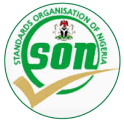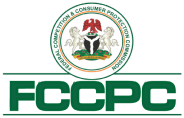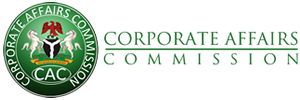,
Protocols:
It is my pleasure to welcome you all to this Press briefing.
In the course of its regulatory activities, the investigation and enforcement (I&E) Directorate of NAFDAC has discovered a syndicate that specializes in importing banned Crusader soaps containing Mercury. The syndicate uses forged customs documents to import the product into the country. Further investigation through the Ports show that the banned Crusader soap was imported seven times in 2021 alone and each consignment is not less than 3 containers with four thousand, five hundred cartons of the soap. These products have found their way into various supermarkets and cosmetics shops with unsuspecting members of the public patronizing them.
Acting on intelligence, I&E Directorate in August 2023 busted a warehouse in trade fair market, which was filled with banned imported soaps. Three (3) trailer-load of imported crusader medicated soap and mekako soap totaling 4,000 cartons by 12 packs by 12 tablet soap were evacuated from the warehouse, while some suspects were arrested in connection with the case.
The street value of the evacuated products is approximately one billion naira.
It is to be noted that the successful busting of the warehouse came after three failed attempts, as the cartel using their own informants were continuously relocating the consignment of soap to different locations in Lagos to prevent the discovery of the products by the determined team of investigators from NAFDAC investigation and enforcement team.
During interrogation of the prime suspects, one Chief Peter Obih (alias Ogbuagu) claimed to have bought the franchise of the product from a company and presented an expired NAFDAC certificate that was issued for local manufacture of the product after the ban in Nigeria.
It is to be noted that not one bar of the soap has been manufactured in Nigeria since the purported registration in 2013. The suspect claim to have just secured a contract manufacturing agreement with a local manufacturer but they are yet to commence production. The sample of the product was taken to our laboratory for analysis and were found to contain heavy metals identified as Mercury. The Crusader soap is falsely labelled, made in England to deceive Nigerians while actual source is India.
This act is an outright violation of NAFDAC Acts and a contravention of the Agency’s regulations, including the cosmetic products (prohibition of bleaching agents) regulations 2019. The arrested suspects will be charged to court while a manhunt is currently being intensified to arrest other fleeing members of this deadly syndicate
The presence of mercury in cosmetics is of global concern, because of the established and documented health hazards it poses to human health and to the environment. The Minamata convention on mercury, a World Health Organisation (WHO) project, underscores the gravity of the challenge posed by the use of mercury containing products.
The Minamata Convention on Mercury is a global agreement, which was adopted in 2013 and entered into force on the 16th August 2017. The Minamata convention bans the sale of mercury-added cosmetics, including skin lightening creams. After 2020, parties to the convention, including Nigeria which is a signatory to the convention, are required to have banned the manufacture, import and export of mercury containing cosmetics products.
The National Agency for Food and Drug Administration and Control enabling law, NAFDAC Act Cap N.1 LFN 2004 mandates the Agency to regulate and control the manufacture, importation, exportation, advertisement, distribution, sale and use of food, drugs, cosmetics, medical devises, bottled water, detergent, and chemicals (collectively referred to as regulated products).
Mercury in cosmetics is usually marketed as skin lighteners and anti-aging treatments. They are used to lighten age spot or to get rid of wrinkles, freckles, acne, or other blemishes. They are usually advertised online on social media sites and sold through mobile applications. Mercury is considered by WHO as one of the top ten chemicals or group of chemicals of major public health concern.
Mercury and its compounds in cosmetics are threat to public health.
Mercury is readily absorbed through the skin into the blood stream and exerts debilitating effect on the vital internal organs of the body. Mercury can damage the skin, brain, the kidney and the nervous system. Damage to the brain results in memory problem, depression, tingling in hands, feet or around the mouth. Damage to skin causes rashes and blotchy spots and give skin a greyish colour. Mercury can also have harmful effect on the eye and ear, causing changes in vision and hearing, respectively.
The health hazards of mercury containing cosmetics is not just to people who use them, but their families also have a share of the negative consequences of the use of the banned chemical, as they might breathe mercury vapour or become exposed by using things like wash cloths or towels that are contaminated with mercury.
The public is also to note that mercury is not only found in creams and soaps, but it is also found in some other cosmetic products, such as balms, lipsticks and lips balm.
Before you purchase your cosmetic products, look out for the following signs which might be strong indication of the presence of mercury in the product you are about to buy:
- Do not assume a product is okay if it comes without labels. Watch out for products from spas and beauty outfits which fall in this category. Do not use products without labels.
- Product may contain mercury, even if it is not listed as ingredient on the label, especially if it is not registered by NAFDAC.
- Look out for the following on the ingredient list, as it indicate presence of mercury in the products: Hg (the chemical symbol for mercury). Mercuric iodide, mercuric chloride, mercurous chloride, ammoniated mercury, calomel, mercurio, amide chloride of mercury, mercury oxide.
- Instruction to avoid contact with silver, gold, rubber, aluminum and jewelry.
- Cosmetics labelled in languages other than English without English interpretation, and not registered by NAFDAC.
It is also worthy of note that the general public should take into cognisance that all soaps and detergents are under the Federal Government of Nigeria imports Prohibition List and are therefore banned from importation into the country.
NAFDAC wishes to advice the general public not to patronize any imported soap and detergents, including mercury containing cosmetics, and to report all infractions to the nearest NAFDAC office.
I want to assure Nigerians that NAFDAC will not relent to ensure that only quality, safe and efficacious medicines, wholesome foods and cosmetics of the right quality are sold in Nigeria.
Thank you.
NAFDAC………safeguarding the health of the Nation!!!
Director General






